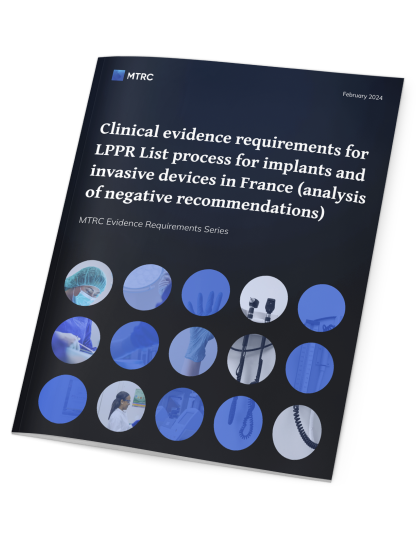
In France, devices used in the inpatient sector are reimbursed through the GHS system (Groupe Homogène de Maladies) or diagnosis-related groups. In the outpatient sector, medical device reimbursement occurs as a result of registration on the list of products and services qualifying for reimbursement (LPPR) under the generic name or brand name. Add-on reimbursement is possible for selected implantable (Title III) or invasive non-implantable (Title V) devices.
The LPPR list is primarily managed by the French National Authority for Health (Haute Autorité de Santé, HAS). The industry can either make a brand-specific or a generic application to request the inclusion of its products into the LPPR catalog. Technologies for which evidence is considered sufficient are listed, and their price is determined nationally. Medical devices whose actual clinical benefit (SA) is considered insufficient are not included in the LPPR list.
The National Committee performs clinical assessment for the Evaluation of Medical Devices and Health Technologies (CNEDiMTS), and price negotiation is performed by the Economic Committee on Healthcare Products (CEPS). The assessment is based on evidence from specific clinical data relating to the device subject to the application for inclusion in the LPPR and the non-specific clinical data about previous products, versions, or competitor products.
In this White Paper, we identified evidence requirement pitfalls that act as a barrier to listing in the LPPR based on analyzing five recent HAS reports with negative recommendations from different medical disciplines. The analysis was performed in January 2024.
Request White Paper
Request analytical White Paper and advance your understanding of European market access for medical devices
